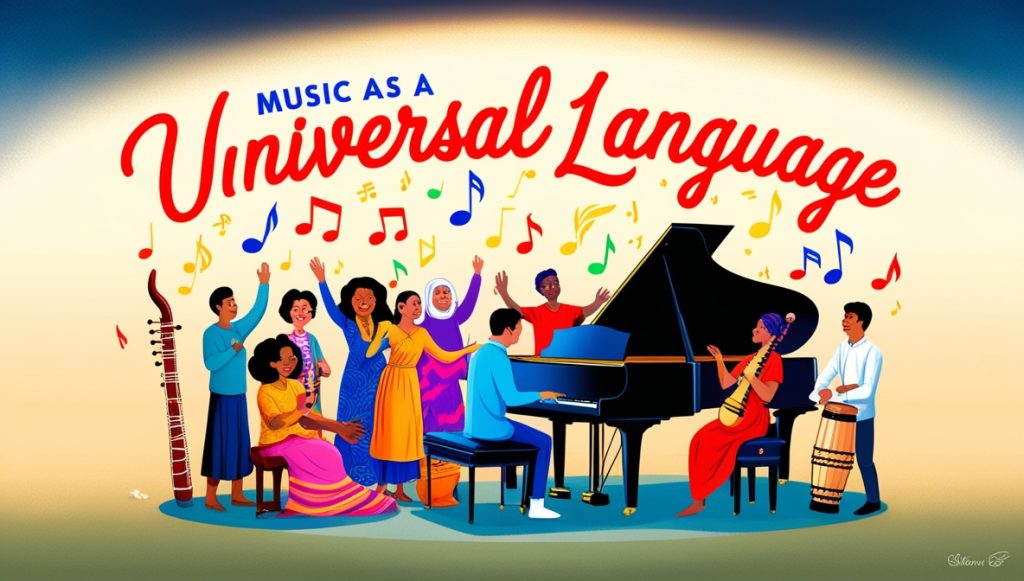Music has long been regarded as a universal language, capable of transcending borders, cultures, and even linguistic barriers. Regardless of one’s native tongue or cultural background, the emotions and ideas conveyed through music can be universally understood and appreciated. This ability to connect people across the globe, despite differences, highlights the powerful role music plays in human communication and emotional expression.
One of the reasons music is considered universal is its foundation in sound, rhythm, and melody—elements that are deeply ingrained in human biology. From the steady heartbeat to the cadence of breathing, rhythm is an innate part of life, making music accessible to everyone. Across cultures, rhythmic patterns can evoke emotions such as excitement, tension, or calm, even without the use of words. Similarly, melodies, with their rising and falling pitches, can convey joy, sorrow, or longing in ways that are instantly recognizable, regardless of cultural context.
Throughout history, music has been used as a means of communication in many forms. For example, Indigenous communities in Africa and South America have used drums and chants to send messages over long distances. In such cases, music serves not just as an artistic expression but as a literal form of communication, capable of conveying complex meanings through rhythm and sound.
Music’s ability to evoke emotions is also universal. Across the world, people respond similarly to the emotional tone of music, whether it’s the uplifting feeling brought on by a fast, major-key melody or the melancholy evoked by a slow, minor-key tune. This shared emotional experience creates a common ground where people from different backgrounds can connect. Even when people don’t speak the same language, they can often sing along to popular songs, and music can foster feelings of empathy and unity.
In addition to connecting individuals, music often serves as a bridge between cultures. World music, which incorporates elements from various musical traditions, demonstrates the way music can fuse diverse cultural sounds into something new and relatable. Genres like jazz, reggae, and hip-hop have their roots in specific cultural movements, yet have become global phenomena, loved and understood by people from all walks of life.
Music’s universality is further highlighted in collaborative efforts, where artists from different cultures and musical traditions come together to create new works. These collaborations not only merge different sounds but also provide a space where cultural exchange can thrive. Whether through a symphony, folk song, or modern pop hit, music has a unique ability to unite people, communicate emotions, and foster mutual understanding, making it truly a universal language.
4o



